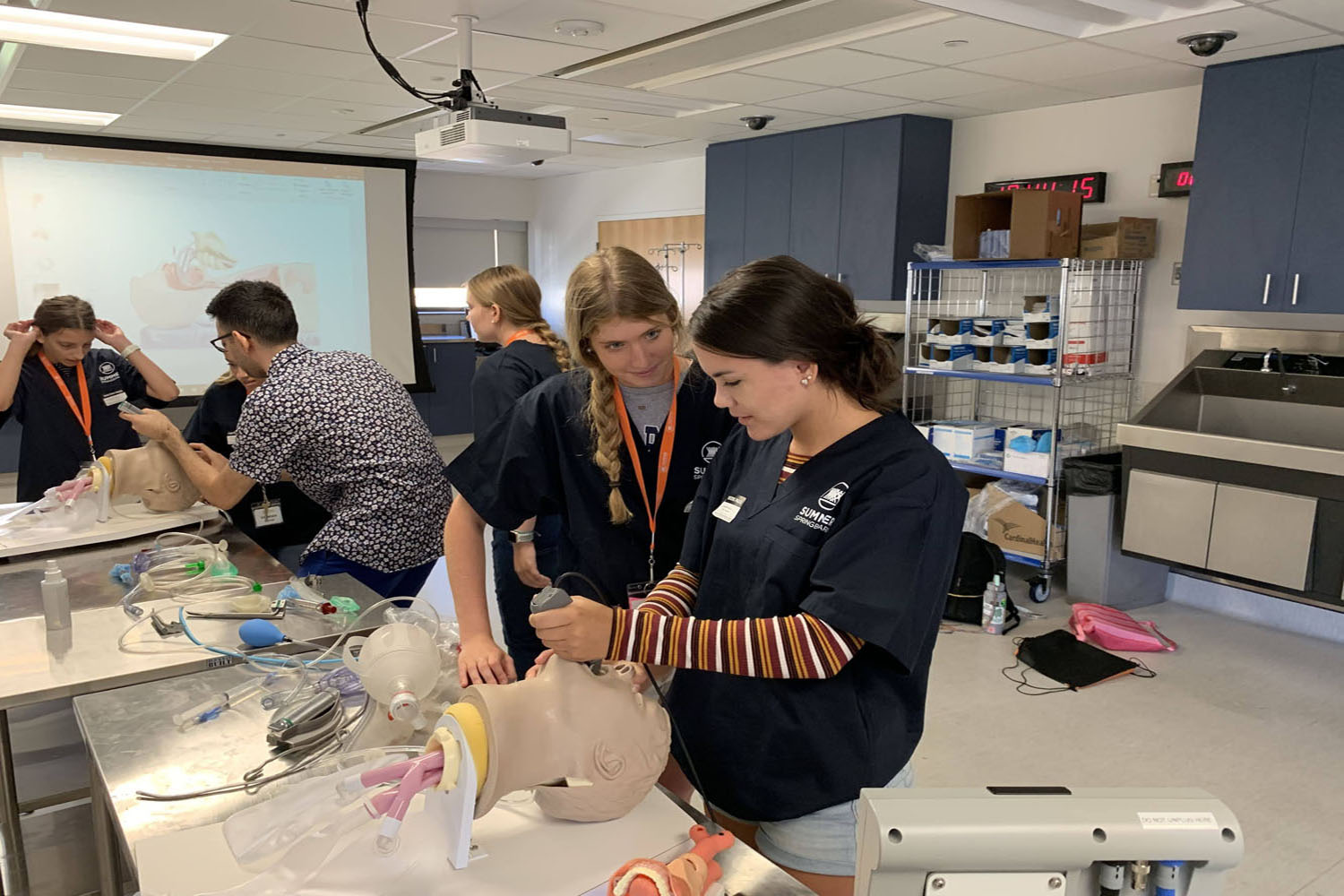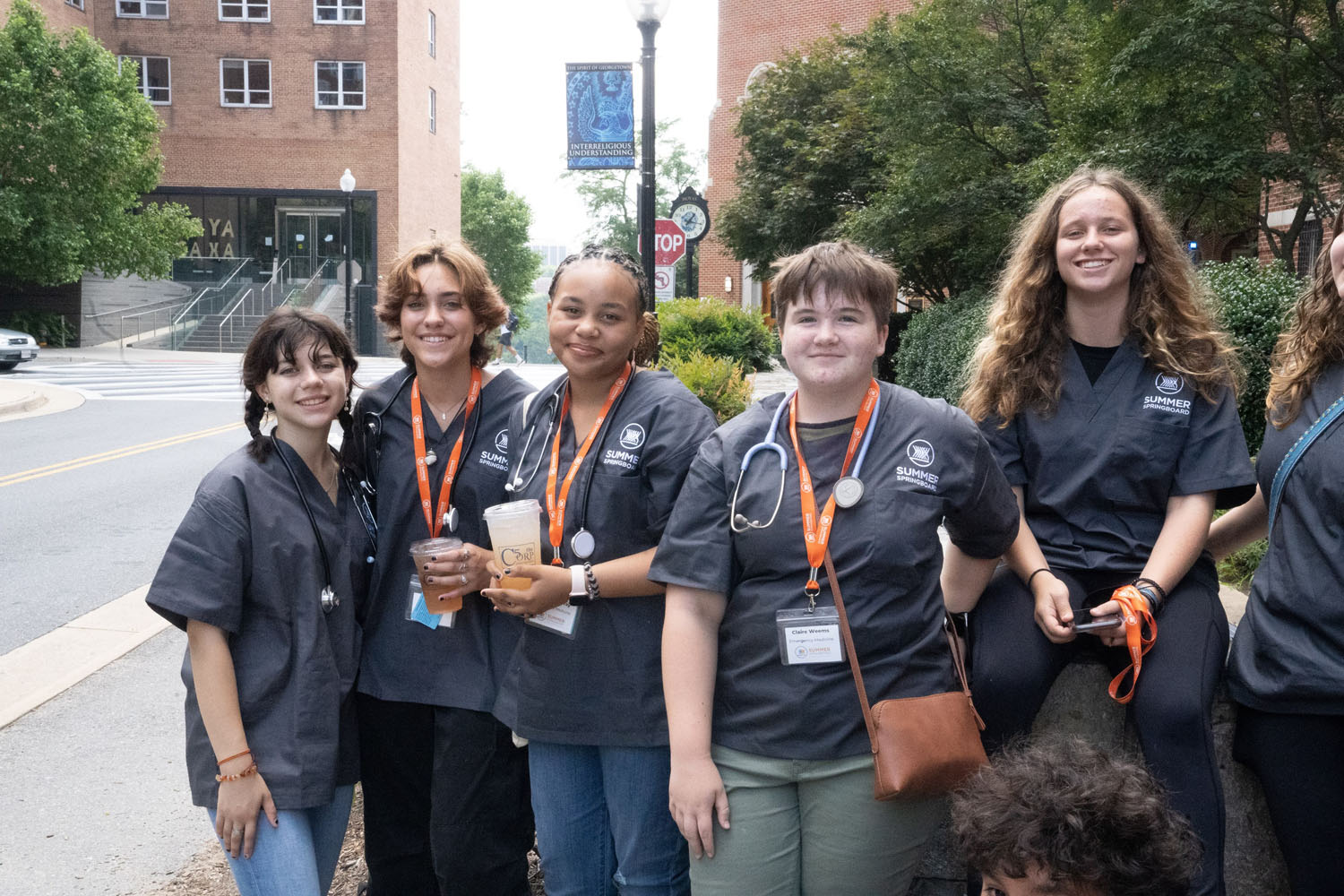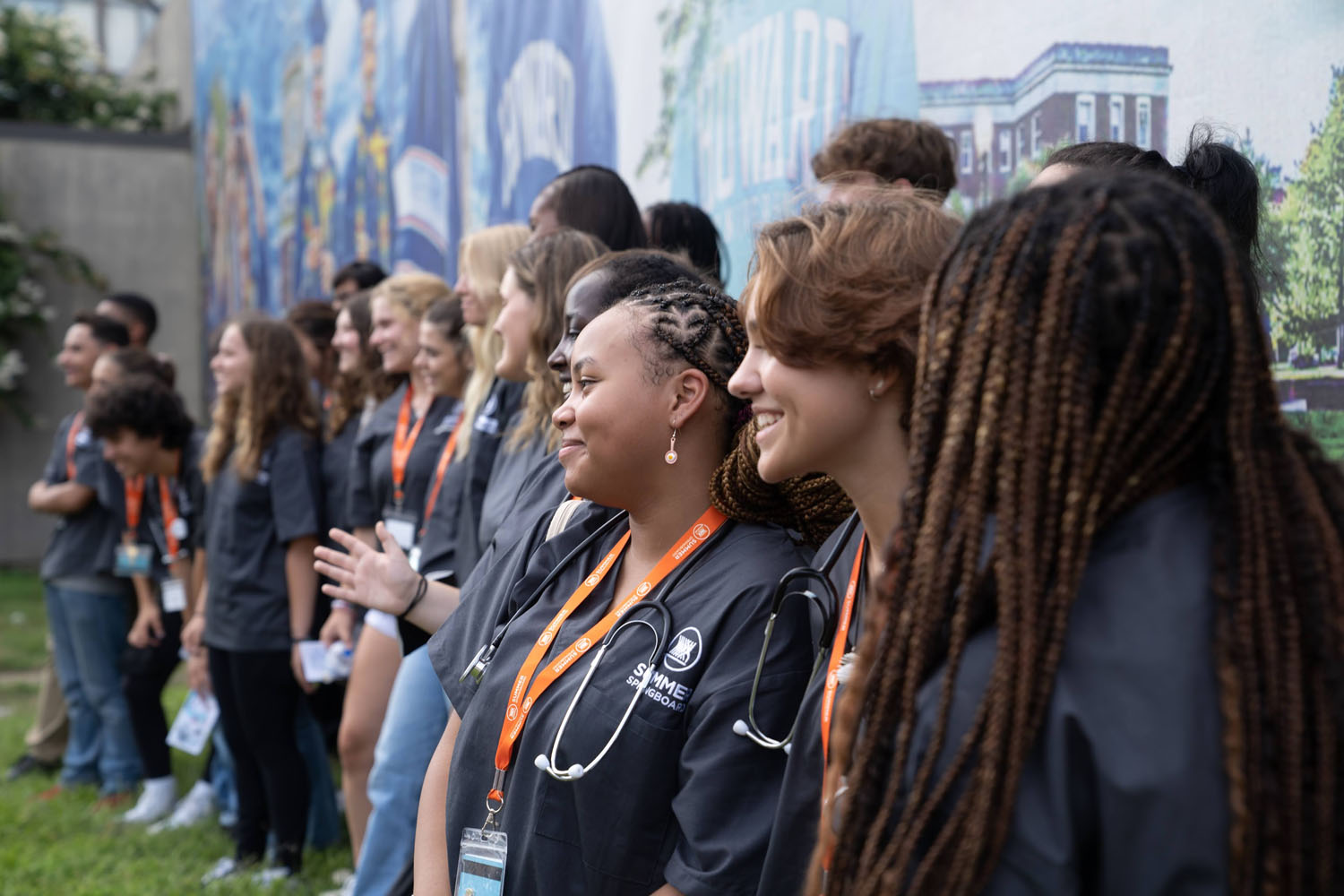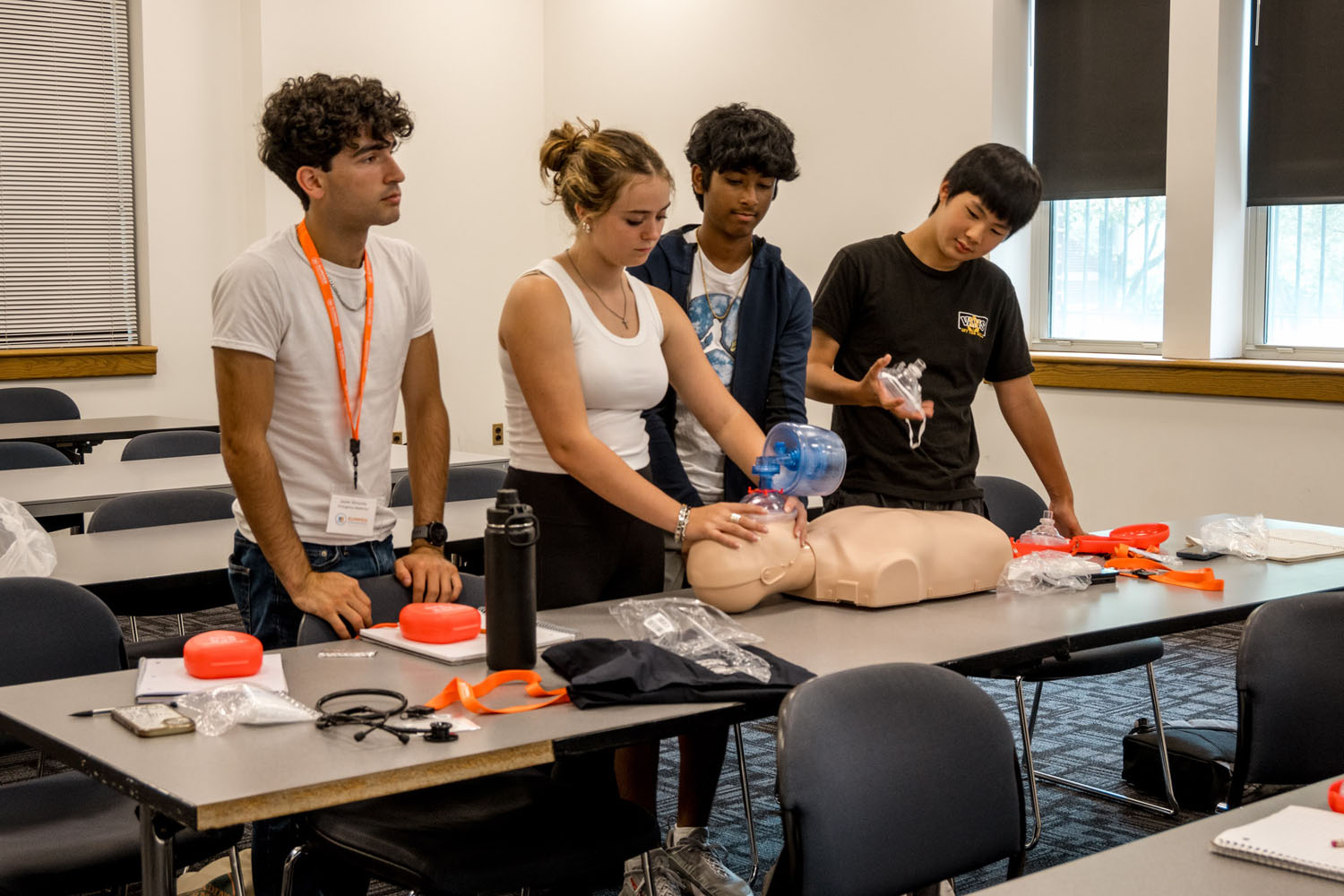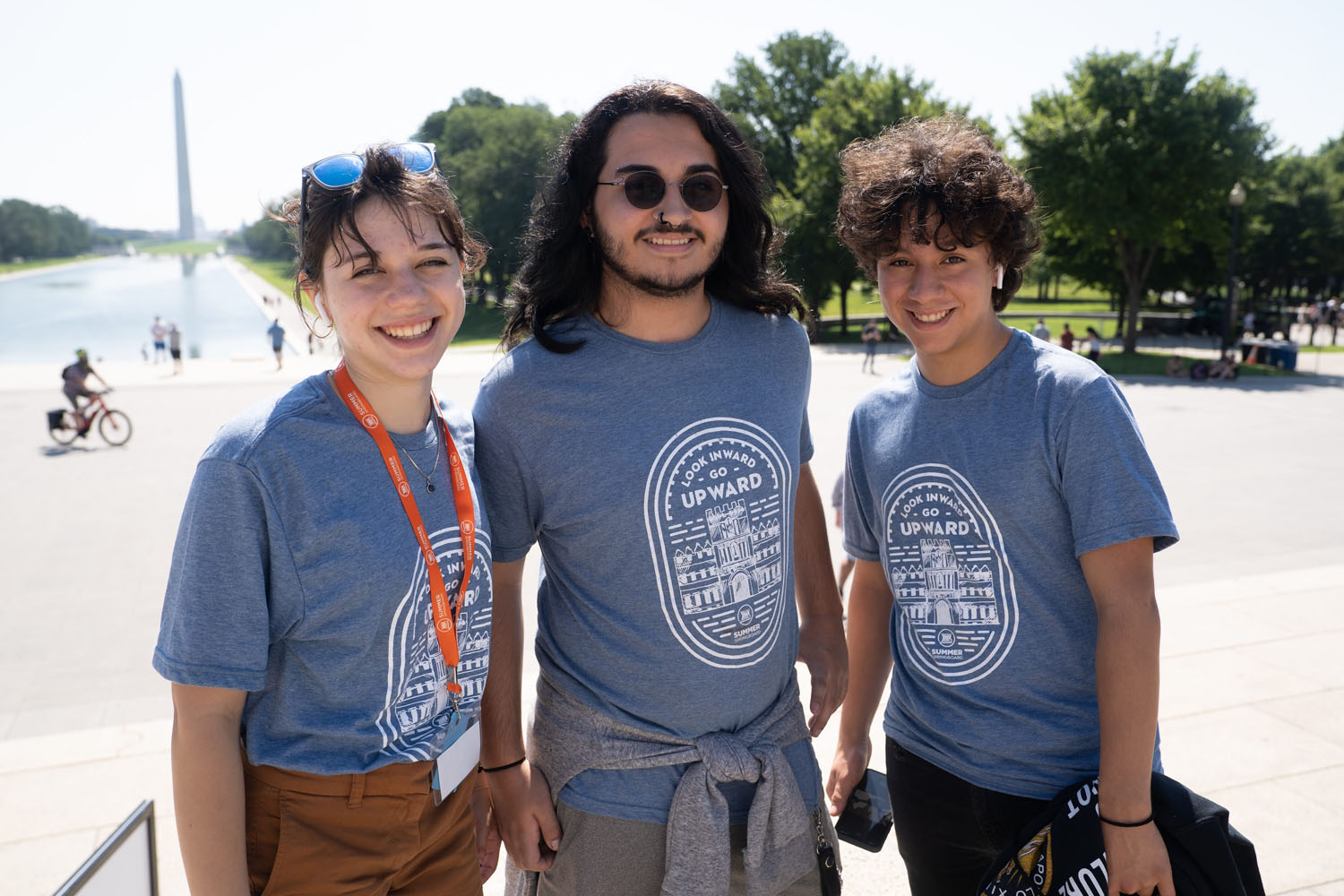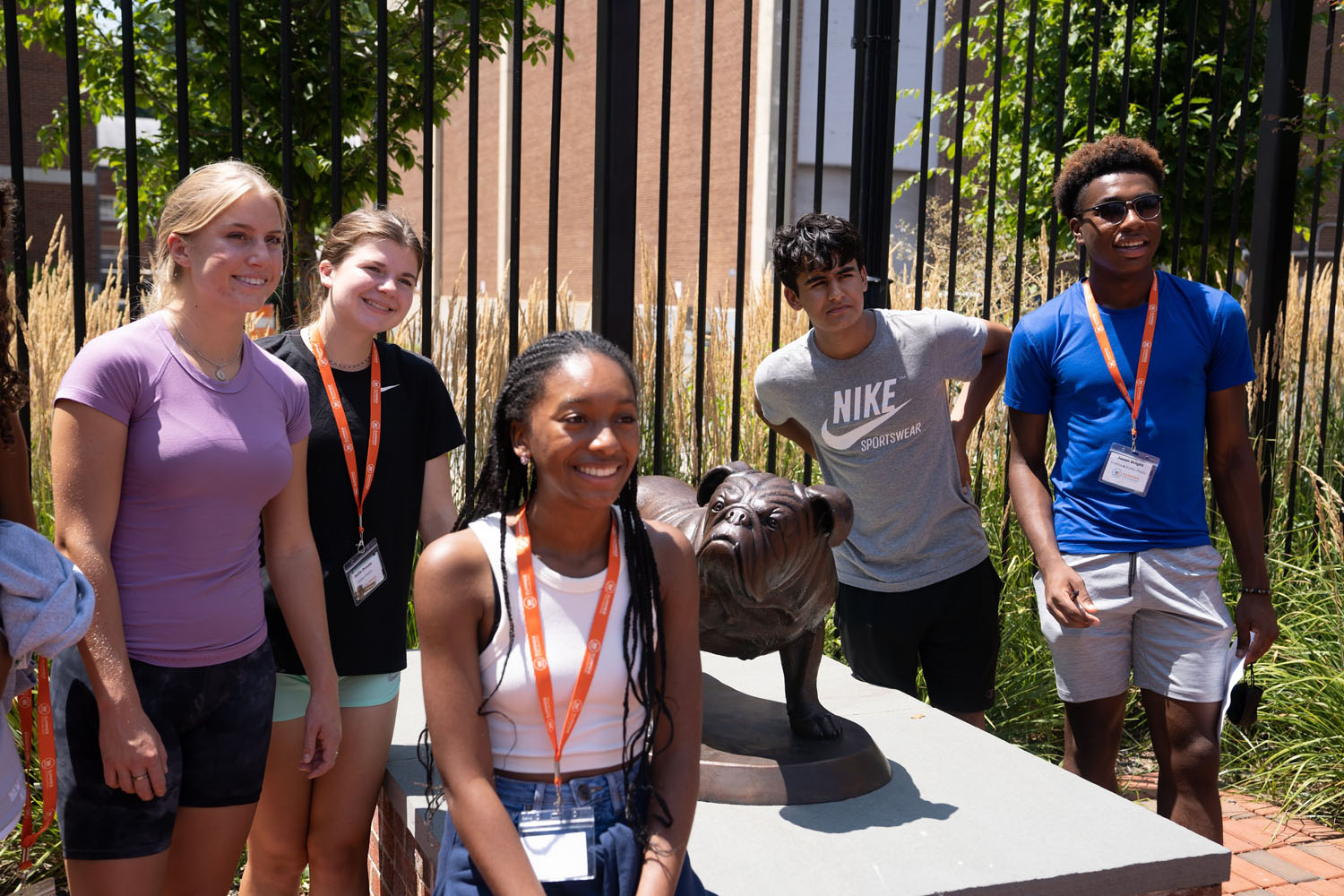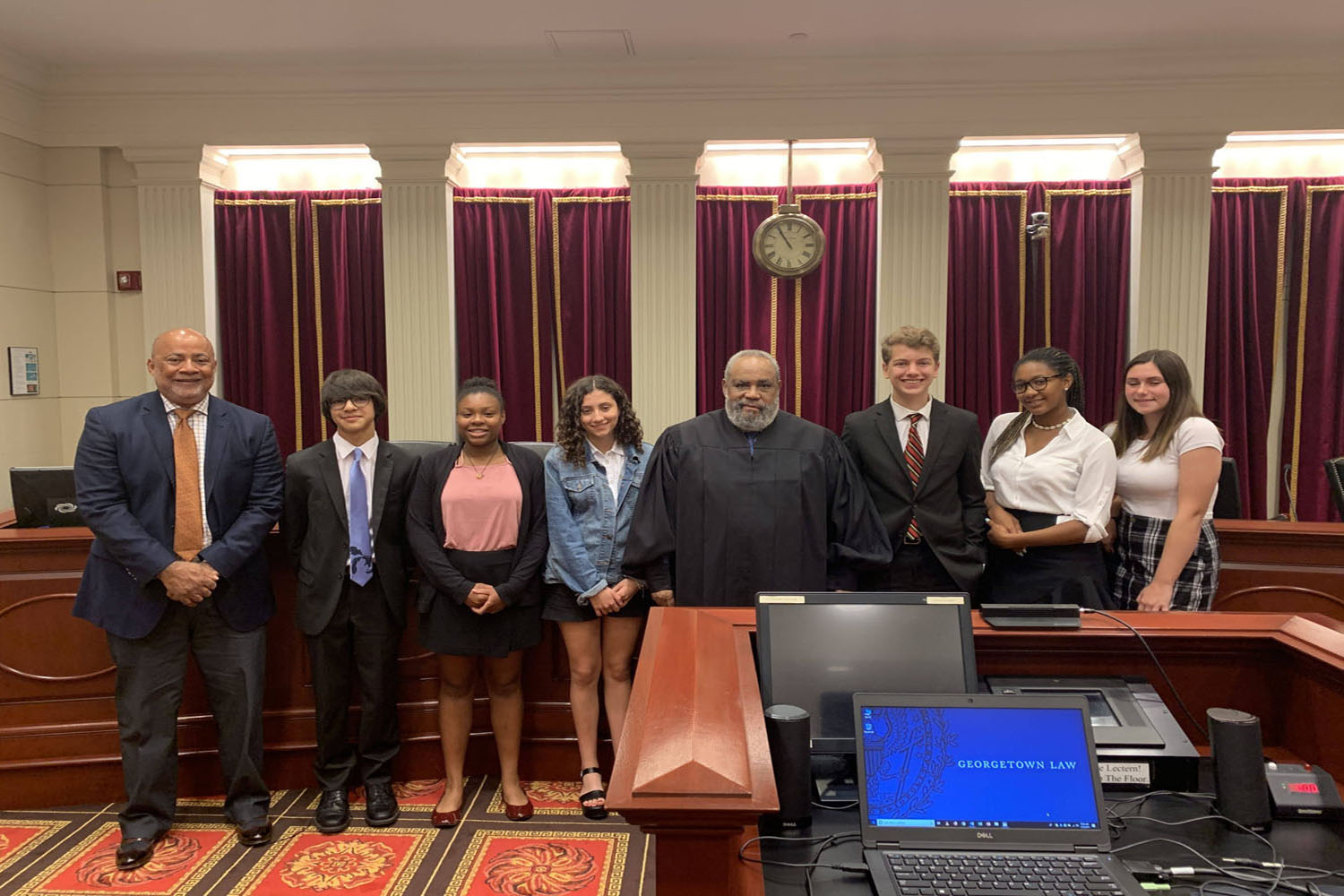Summer Springboard
Emergency Medicine
ON THE CAMPUS OF GEORGETOWN UNIVERSITY
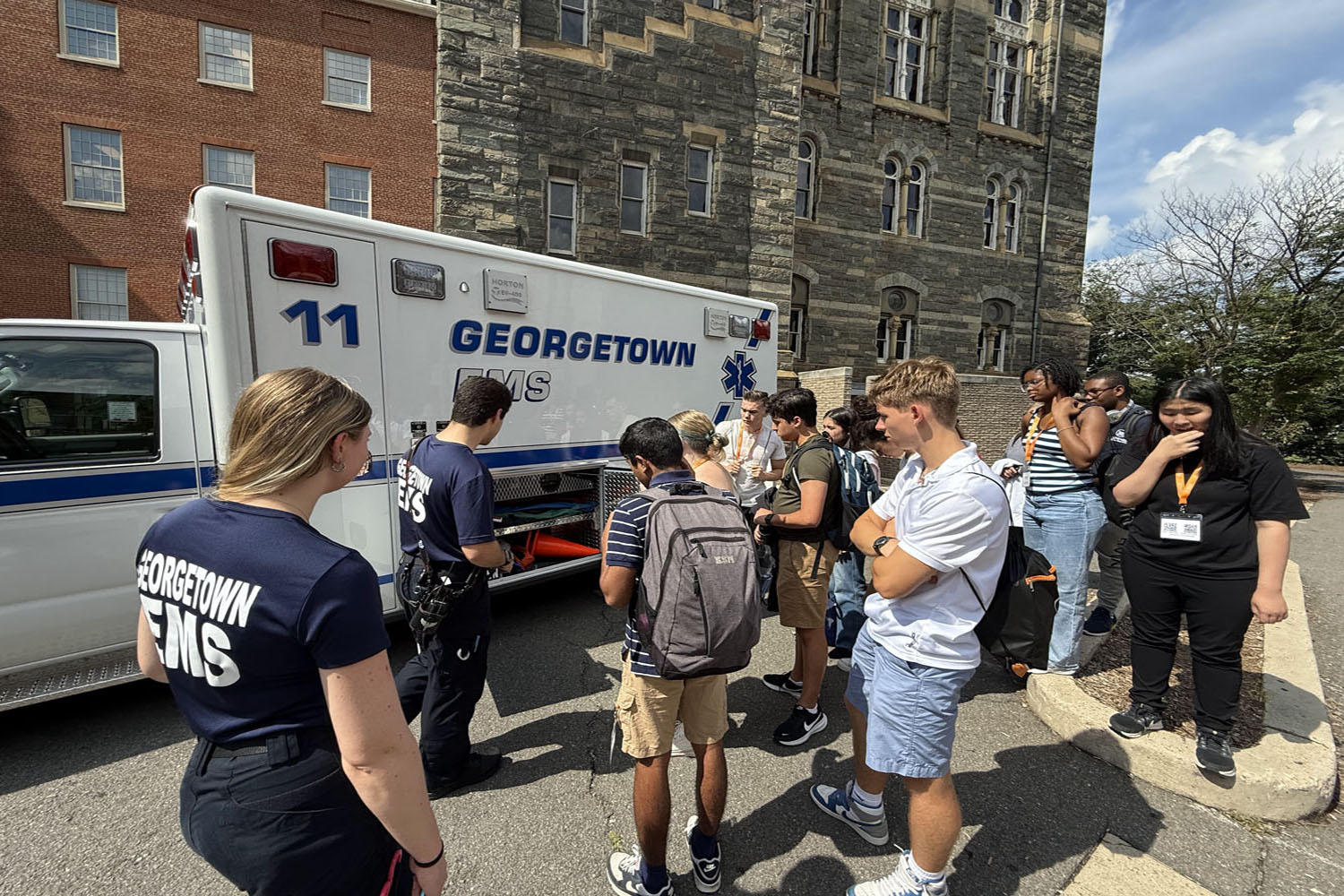
LEARN FROM EMERGENCY MEDICINE PHYSICIANS AND EMTS, TRAIN AT A SIMULATION CENTER, AND DEVELOP PRACTICAL SKILLS THROUGH HANDS-ON LEARNING
THIS IS A TWO-WEEK PROGRAM WHERE YOU’LL FOCUS ON ONE COURSE FOR THE ENTIRE DURATION.
Emergency Medicine @ Georgetown
- Learn real-world medical skills such as suturing, splint setting, wound care, taking vital signs, and conducting simulated clinical rounds.
- Train in a state-of-the-art Simulation Center at Trinity Washington University, featuring high-tech labs and simulation suites for immersive experiences.
- Participate in hands-on simulations covering maternity, pediatric, adult care, and emergency medical scenarios, including CPR and physical therapy techniques.
- Collaborate in teams to research, diagnose, and create treatment plans for simulated patients, mirroring real clinical practices.
- Experience the intensity of a mass casualty simulation and learn how to respond effectively in high-pressure emergency situations.
- Explore emergency medical services up close by visiting an ambulance and speaking with EMTs and paramedics about life on the front lines.
Summer Springboard
Emergency Medicine
About This Course
A medical program for teens on a university campus in Washington, D.C.
Our summer medical program for high school students offers a comprehensive, hands-on introduction to the world of healthcare. Over two weeks, students learn essential medical skills such as taking vital signs, performing CPR, suturing, setting splints, and wound care. Through immersive experiences in wilderness medicine and simulated clinical rounds, they build confidence and competence. Instructors introduce key medical concepts as students actively apply their learning in real-time scenarios, including diagnosing patients and developing treatment plans in team settings.
A highlight of the program is the visit to the state-of-the-art Simulation Center at Trinity Washington University. This cutting-edge facility features advanced skills labs and high-fidelity simulation suites, where students take part in emergency scenarios, including maternity, pediatric, and adult care. The program culminates in a mass casualty simulation, where students triage and stabilize victims under pressure. Participants also explore emergency medicine by touring an ambulance and speaking directly with EMTs and paramedics about life on the front lines.
TOPICS YOU'LL EXPLORE
Hands-on Learning
Learn basic medical skills and get training on how to handle situations when medical care is not immediately available. Simulations will allow students to learn and practice hands-on medical techniques including positioning and extraction, wound care, control of bleeding, stitches and sutures, usage of splints and slings, and other useful potentially life-saving skills. In small groups, students in a simulated medical team will be required to research the patient’s history and symptoms, create a diagnosis based on their findings, and develop a treatment plan.
Career Exploration
Throughout the program, meet a variety of experts in the field of healthcare that will provide advice and tips on academic preparation and professional pathways to explore. We will discuss the wide variety of professions within the medical field, such as physical therapy, physician’s assistants, phlebotomy and more. You’ll get a deeper sense of your unique motivations and aptitudes and how that aligns with potential academic and career choices. This helps students make better informed decisions about some of life’s most important choices.
RESOURCES
Course Infosheet
Click here to view or download the printable infosheet for this course.
Program Catalog
Click here to request our catalog to learn more about our summer programs and courses.
Campus Page
Click here to view the website page for this campus and learn more.
“I was a part of the Emergency Medicine course, and I’ve found myself using the different skills that I’ve learned, even in different subjects. I’ve used suture knots in my art and bio classes. I’ve helped other people make basic decisions if something hurts based off what I learned. It was a really valuable experience.”
-A. Jones | Alumni Student
Summer Springboard
Emergency Medicine
Meet Your Instructor
Jennifer Wallace has a Master’s in Nursing Education and a Bachelor’s in Nursing and Psychology. Her 18 years in nursing have included bedside care of obstetrical patients and clinical coordination of the maternity service line. She has also served as a Nursing Professional Development and Education Specialist for the past three years at Sibley Memorial Hospital, including onboarding and educating new graduate nurses. Her career in nursing also allowed her to travel and work at multiple hospitals throughout the country. One of her favorite work assignments was at Cedars Sinai Medical Center in Los Angeles, CA, known as the ‘hospital of the stars.’ She has recently transitioned into academia and now serves as a Professor of Nursing, teaching courses in Maternity and Women’s Health and Psychiatric/Mental health nursing. She is passionate about educating and mentoring the next generation of healthcare heroes.
JENNIFER WALLACE

“I loved making new friends and learning with one of the best professors ever. This experience really gave me an opportunity to show off my skills and learn while at the same time, having fun.”
-Saish R. | Alumni Student
Summer Springboard
Emergency Medicine
Dates & Tuition
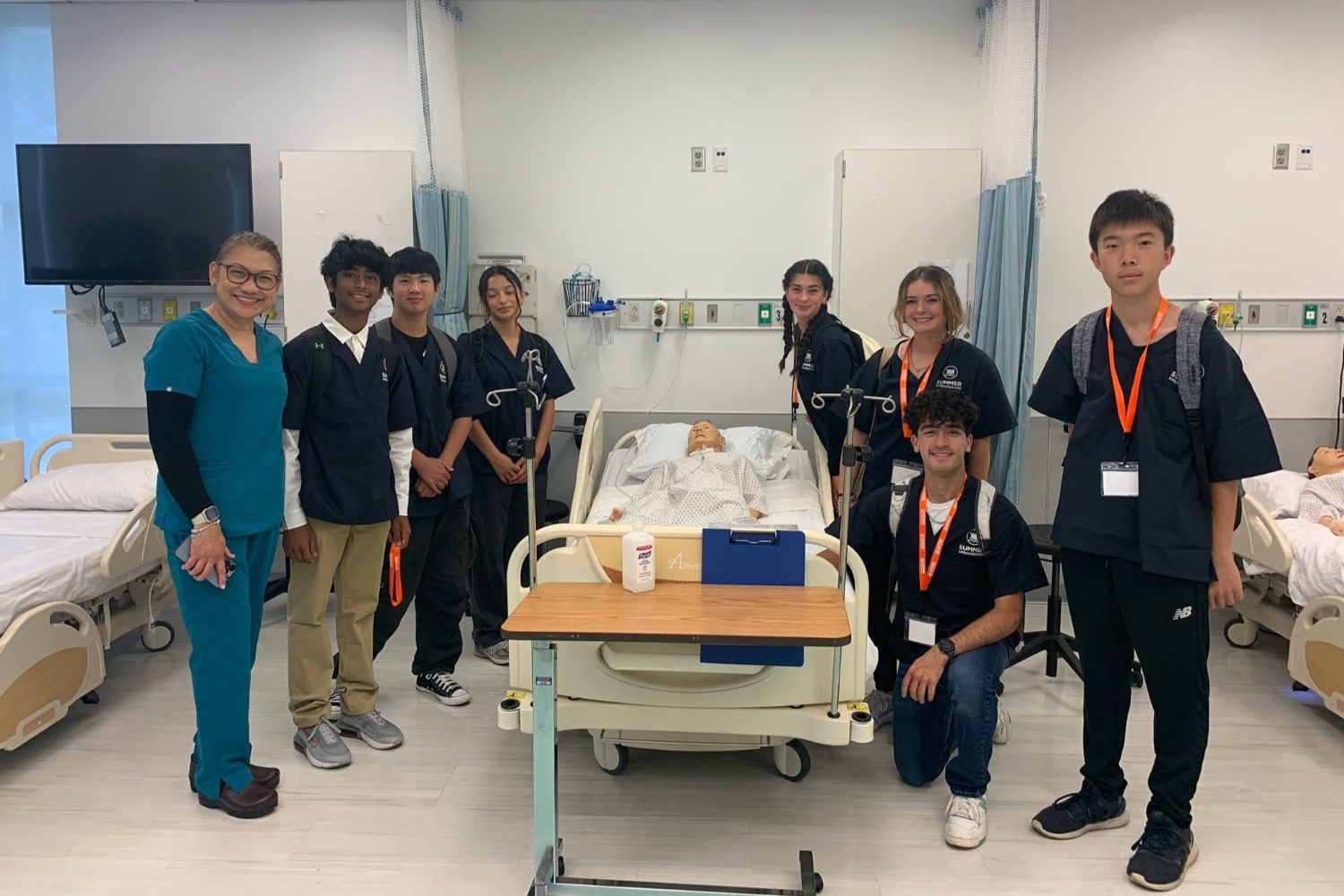
| 2026 Dates |
|---|
| Session 1: June 21 – July 3, 2026 |
Click here to enroll in this course using our online enrollment form.
| Tuition |
|---|
| Residential Tuition: $5,798 |
| Commuter Tuition: $2,998 |
Tuition Protection Plan: Allows for cancellation for any reason up until the day of the program.
| Location |
|---|
| City: Georgetown Neighborhood |
| State: Washington, D.C. |
| Campus: Georgetown University |
Summer Springboard programs are not run by our campus partners (with the exception of Cal Poly and NYSID which are run in partnership with SSB). Universities and their affiliated departments and partners do not control and are not responsible or liable in any manner for any part of the Summer Springboard program.

